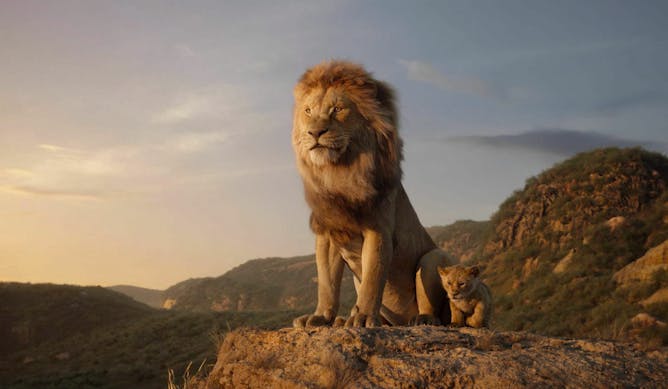|
|
|
Editor's note
|
|
Humans now exploit more than 70% of the Earth’s ice-free surface. Much of that is to grow food. Modern agriculture uses up soil 100 times faster than it can be replenished and swaths of fertile land are withering to desert faster every year.
Where does all this lead? Starvation for many and catastrophic climate change, according to a new IPCC report. Thankfully, there is still time for a different future – and help could come from an unlikely place.
Kelly Reed studied ancient societies and found ingenious ways of growing food that work in greater harmony with nature. In Pre-Incan South America, people raised soil beds above canals to absorb floods and help irrigate crops during droughts. In China 2,000 years ago, rice farmers employed fish for free pest control – growing more healthy protein without harmful pesticides.
These methods are still used today. Their persistence over time suggests they could be a more reliable way of feeding the world in an increasingly uncertain future.
Also, read what The Lion King can teach us about how children deal with grief, and consider the challenge facing Jeremy Corbyn’s Labour party as Britain gears up for a potential general election later this year.
|
|
|
Top stories
|

Sepp photography / shutterstock
Anna Krzywoszynska, University of Sheffield
The 'tractors and chemicals' recipe for farming has let human populations boom, but left us with degraded soils.
|

HoangTuan_photography/Pixabay
Kelly Reed, University of Oxford
A new IPCC report has called for radical changes in food production to avoid catastrophic climate change. Rice-fish farming and mixed crops could help.
|

It’s important to help children understand that death is part of life. Here, the father, Mufasa, voiced by James Earl Jones, and his son, Simba, voiced by JD McCrary, in a scene from ‘The Lion King.’
(Disney via AP)
Elena Merenda, University of Guelph-Humber
'The Lion King' illustrates how a child moves through five stages of grief with the support of loving friends, family and community.
|

He does have a paddle, though.
PA/Danny Lawson
Peter Andersen, University of Liverpool
Voters have less faith in the Labour leader's suitability to lead than they did after his 2017 successes.
|
Health + Medicine
|
-
Ahmed Elhakeem, University of Bristol
The timing of puberty can influence a child's bone strength throughout adolescence and into early adulthood.
-
Sarah Hall, Anglia Ruskin University; Joanne Morrissey, Anglia Ruskin University
Common emollients used to treat skin conditions are a hidden fire risk in most homes.
|
|
Business + Economy
|
-
Ivy Buche, IMD Business School; Amit Joshi, IMD Business School
India's furniture industry is worth US$32billion and is projected to double by 2023.
-
Rob Wilson, Sheffield Hallam University; Dan Plumley, Sheffield Hallam University
Clubs are more wary about buying and selling.
|
|
Arts + Culture
|
-
William Tullett, Anglia Ruskin University
The history of smell in 18th-century England reveals the complex story of scent and personal space.
-
Hayleigh Bosher, Brunel University London
The US pop singer has been ordered to pay a Hip Hop artist for copyright infringement. But the judgment lowers the bar on musical copying.
-
David Orrego-Carmona, Aston University
Giving a movie subtitles or dubbing it into multiple languages makes commercial and cultural sense, but the process can be riddled with potential pitfalls.
|
|
Politics + Society
|
-
Asif Hameed, University of Southampton
If MPs aren't sitting in parliament to block no-deal Brexit, can it go ahead anyway?
|
|
Science + Technology
|
-
Jan Zalasiewicz, University of Leicester
Remains of a 365m-year-old forest of extinct lycopsid trees has been found in China.
|
|
| |
Featured events
|

|
Rewley House, 1 Wellington Square, Oxford, Oxfordshire, OX1 2JA, United Kingdom of Great Britain and Northern Ireland — University of Oxford
|

|
Institute of Mental Health, University of Nottingham Innovation Park, , Nottingham, Nottingham, NG7 2TU, United Kingdom of Great Britain and Northern Ireland — University of Nottingham
|

|
34 Broad Street, Oxford, Oxfordshire, OX1 3BD, United Kingdom of Great Britain and Northern Ireland — University of Oxford
|
|
|
|
| |
| |
| |
| |
| |
|
|
|
|
|
|
|